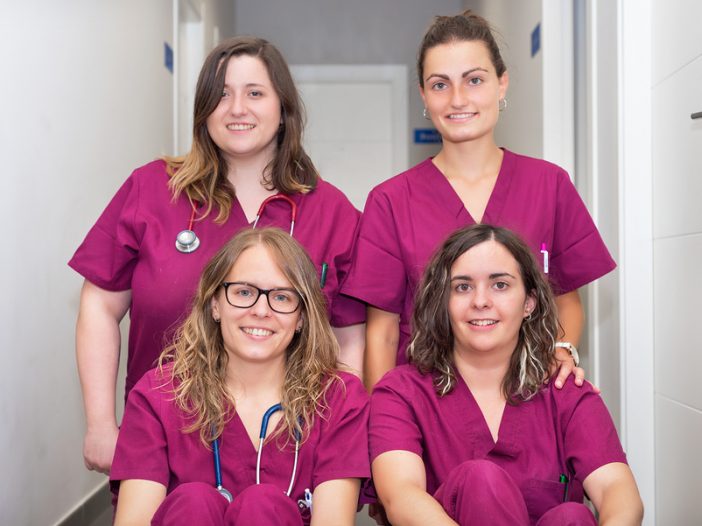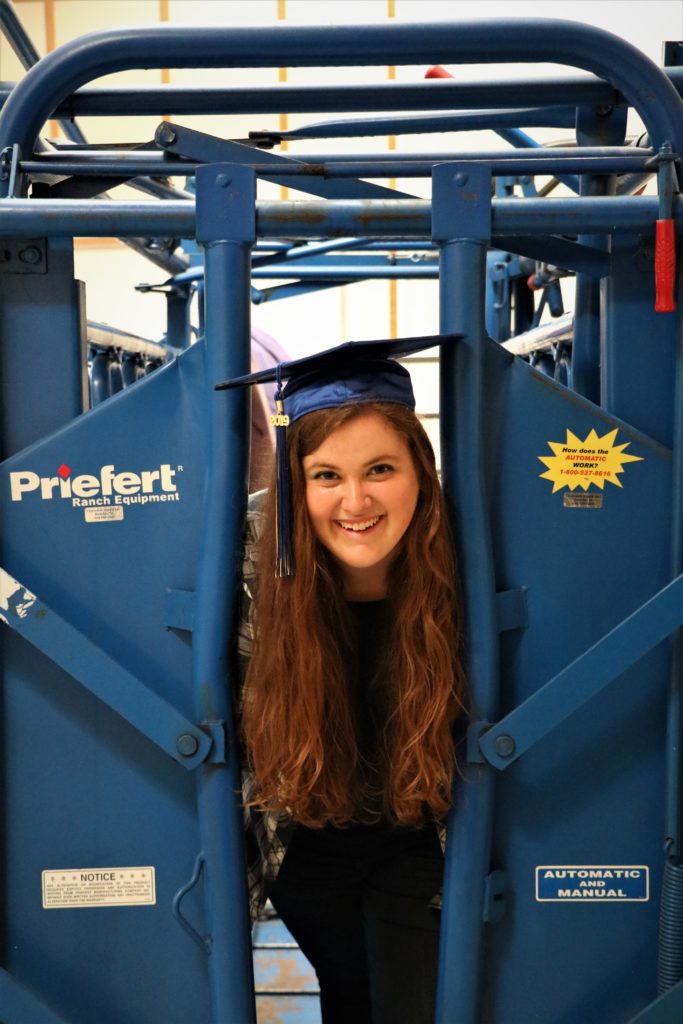
I graduated last week.
That’s something I’ve been looking forward to saying for almost three years now.
I graduated. I am officially a Veterinary Technician, Virginia License pending. Everyone talks about how exciting it is, how proud they are, how they can’t wait to get out and start working but no one talks about the abrupt discontinuation of the life you lead for two solid years. My classmates, the people that I worked beside, cried beside, made mistakes and triumphs beside; my teachers that were always there to catch my mistakes and walk me through difficult problems… they were all suddenly gone and in all the celebrations I didn’t even say the goodbyes that I had planned.
Graduating comes with a huge helping of fear. When will I see my friends again?
Some of my best friends.
What if no one in the “real world” takes the time to explain what I’m doing or help me with things I should know but don’t? What if I fall flat on my face? What if I single-handedly destroy the reputation of my program? What if I peaked in school and won’t really be that successful?
I need my classroom security blanket.
As a student, I took as many opportunities as I could to go to any lunch-and-learn, CE and conference, especially the talks on mental health. I had already heard the horror stories of the profession and I had even been told multiple times that sophomore students in our program had a reputation of turning on each other in the last semester. I wanted to get a good foundation for mental health before graduation because, as we all know, prevention is so much easier than treatment.
Surprisingly, our class didn’t turn on each other. I was waiting for it. I was subconsciously holding my breath until the last final, waiting to defend myself like a fractious cat that needs oral medication TID. There were plenty of stressors, plenty of competition and plenty of clashing personalities but we made it with only a few arguments. I looked around on pinning night and all the friend groups from the first semester were sitting together.
So how did we do it? How did the large animal people and the exotics people and the shelter medicine people all get along? How did a class with an age range of more than 30 years sit in one small, windowless room for 8 hours a day and still miss each other when it’s over?
I don’t know.
But I have some ideas.
I know the strengths of my class and I have to believe that these are the things we must cling to as we head into this new chapter of our lives.
We took mental health seriously and we seriously took care of each other.
The stress of this profession is overwhelming. The amount of death we see, the difficult, irate, defeated, emotional clients and coworkers we have to deal with, the patients lunging at you that you just wish understood that you are trying to help. Most of our class worked in a clinic while going through school so on top of all that, they had multiple quizzes, presentations and assignments in any given week. That is an incredible strain on mental health.
The most comforting thing to me was knowing that, of all the people in the world, these people – my classmates – knew exactly what I was going through. They knew that essential skills practical was stressing me out because it was stressing them out too. They knew I was about to run screaming out of the surgery suite with Muppet arms flailing because they were about to come with me.
But we talked about it. We admitted it was hard and we were stressed and then we helped each other and we did it. There was no reason to tough it out on our own because there was comfort and safety in our collective stories being told.
In any clinic, there are always things you have in common. You all have some of the same stressors and some of the same stress-relievers. Find those things, hold on to them and share them when life is hard. Work together for a less stressful solution or buckle down and go through it together when there’s no way around it. View challenges like a game of Red Rover but instead of one person being called out, you can all charge at once.
We knew our individual strengths and weaknesses.
We didn’t stand on pretense. When we couldn’t do something, we admitted it and sought out those who could. The people that could hold rats and mice on clinical rotations were a huge asset. There were the cat charmers, the dog whisperers, the IV catheter masters, and the lab geniuses and we knew exactly who to call when we needed help. We accepted that there was nothing to be gained by pretending, but everything to learn from being taught (maybe for the third or twelfth time). Be proud of what you know. If you are the dog whisperer of your clinic, be the best Chihuahua tamer you can be. If you’re the lab genius, take every slide that comes your way. Conversely, if you’re blowing every vein you look at, do your best, try new techniques, find the guru and learn from them. Just because you’re not the best at it, doesn’t mean you can’t be good.
We laughed.
We laugh in our labs, we laughed on our fields trips, we laughed at each other, at ourselves and we laughed at the odd YouTube videos that we watched to get us through the week. We laughed so much that we had to be reminded that school was supposed to be torture. We laughed more than we cried, which is pretty impressive going through Lab Techniques.
It is a well-known fact that positivity breeds positivity and I am convinced that our overall joyful attitude was a huge part of our success. There may not be something to laugh at every day, but there is always a reason to smile, even if it’s just because you made it through another day.
We wanted to learn.
Sure, there were things we had to do and weeks when studying felt like the worst possible activity but when we were required to attend one day of the state veterinary conference, we attended two. When we heard about an interesting CE, we went after a full day of classes, even before we knew dinner was included. We came back to school excited to share and discuss and practice what we learned. Obviously, in a profession where you are required by law to get continuing education, you have to be a lifelong learner, but there’s a difference in getting your hours and actually enjoying it. There is so much information, so many species, so many new techniques emerging all the time and so many amazing sponsors that CE should be one of the most exciting things about our job. We don’t have to, we get to. Changing the way, we view our learning experience can change our whole profession.
I realize that I am young and new and my outlook is fresh, but I do simultaneously feel the weight and the excitement that comes with my new career. My college experience was amazing and if I can find the key factors in what made it so rewarding, I can continue to love what I do and share that joy with others.
Maybe you’re also a new graduate or maybe you’ve been practicing since the invention of the profession but I hope that I can in some way encourage you to take your mental health seriously, be the best you can, recognize the best in others, laugh often and never stop loving to learn.
The views and opinions expressed in this article are those of the author and do not necessarily reflect the position of the DrAndyRoark.com editorial team.

ABOUT THE AUTHOR
Originally from Rocky Mount, Virginia, Lydia Poland is a 2019 graduate of the Blue Ridge Community College Veterinary Technology Program. She is the proud parent of two dogs, Shasta and Griffin, and one very sassy black smoke tabby, Saphira. After graduation, she will continue to pursue her love of learning as a veterinary technician intern at the University of Tennessee College of Veterinary Medicine.